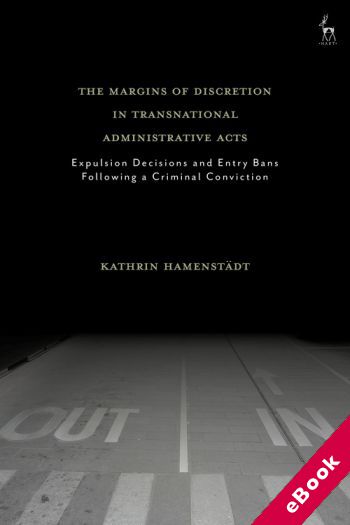We are now closed for the Christmas and New Year period, returning on Monday 5th January 2026. Orders placed during this time will be processed upon our return on 5th January.

The device(s) you use to access the eBook content must be authorized with an Adobe ID before you download the product otherwise it will fail to register correctly.
For further information see https://www.wildy.com/ebook-formats
Once the order is confirmed an automated e-mail will be sent to you to allow you to download the eBook.
All eBooks are supplied firm sale and cannot be returned. If you believe there is a fault with your eBook then contact us on ebooks@wildy.com and we will help in resolving the issue. This does not affect your statutory rights.
This book analyses the expulsion of delinquent foreigners and their exclusion from the territory through a comparative lens.
The book begins with a vertical perspective, focusing on the effects of European standards on the law of expulsion and entry bans in Germany and the Netherlands, and the law regulating deportation from the United Kingdom. It explores how these countries use their margin of discretion, granted by European law, to solve the societal, political and legal challenges that are posed by delinquent foreigners. Moreover, it highlights the similarities, convergences and differences between these countries' approaches to the topic.
Subsequently, the book adopts a horizontal perspective by focusing on the effects of national decisions on other states, thereby addressing transnational administrative acts. National expulsion decisions and entry bans can be given effect throughout European countries, with the consequence that other states are in principle obliged to enforce them by refusing foreigners access to their territory. This obligation arises despite the fact that expulsion decisions and entry bans are adopted on the basis of diverging national provisions. Even though the margin of discretion of national decision makers has already been limited, the remaining differences call for further recommendations, which are put forward in this book.